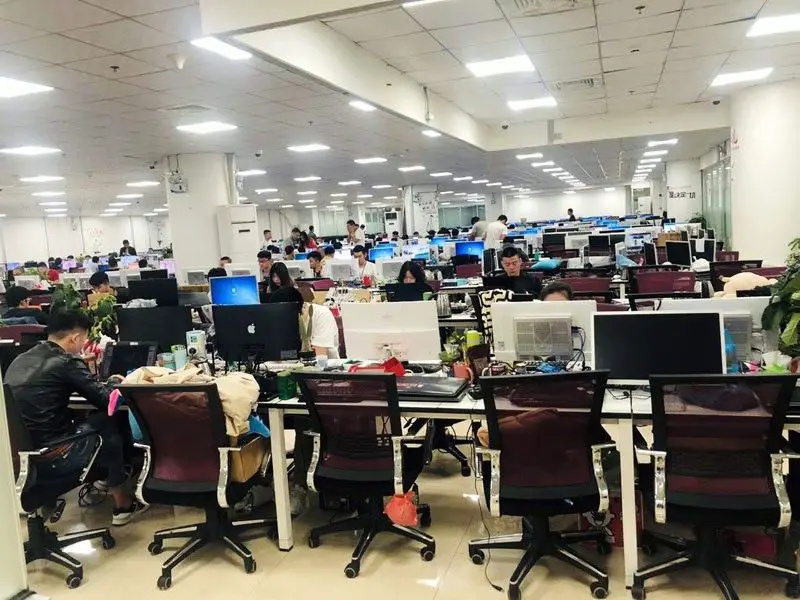A bicameral committee puts study on a bill that will lower corporate income tax in an attempt to attract more foreign investments. In addition to that, this move can also enable the Philippine economy to recover from the COVID-19 pandemic.
The bill that would lower corporate income tax has been confirmed by the House of Representatives and the Senate.

The Enterprise Corporate Recovery and Tax Incentives or Establish bill, a core priority of the administration of President Rodrigo Duterte, would decrease the corporate income tax rate.
Read: The Removal of the Cedula, Called on by Salceda
From 30%, currently the highest in Southeast Asia – it’ll be down to 25% for large corporations and 20% for small businesses by 2029.
In the first minutes of the day’s plenary session, the House confirmed the committee’s report on the said bill. According to Sen. Pia Cayetano, the bill would allow being forwarded for the signature to President Rodrigo Duterte.
I’d like to report to the Filipino people & to our business community that the #CREATE bill has finally moved forward!”
Increasing and Retaining Foreign Businesses and Investors
Bicameral committee chairman Joey Salceda said that reconciling the Senate and Lower House version of the bill would reduce investor uncertainty about the country’s fiscal regime. Saying that it will be opening doors to investment.
The bill would also streamline investor incentives to plug leaks worth more than P300 billion ($6.24 billion) arising from tax holidays and other perpetual benefits provided to investors.
Meanwhile, it took them time to come up with a consensus version. However, from 2018 to 2020, they lost $18 billion in foregone DDI. Bleeding is now stopping.
Also Read: Diokno Shows a Sample of the National ID Card, They Plan on Printing 154K Cards Per Day
We are also ending hesitation to invest in the Philippines.”
More Jobs For Our Countrymen
Salceda said that the tax reform measure would generate 1.8 million jobs over the next decade; resulting in a tax saving privilege for companies of some P931 billion.
We are also reducing corporate income tax by CREATE to get it closer to the average of the ASEAN region.
ASEAN has become the world’s fastest-growing economic area. He adds that the Philippines’ neighbors are friends of ours, but they are our rivals as well. We have to try to keep up with them.
Duty-Free Vaccines
The bill would allow the importation of COVID-19 vaccines that are scheduled to arrive in the Philippines this month to be non-taxed and duty-free.
Value-added taxation is also exempted to the following:
- Drugs approved for use by the clinical trials of the Food and Drugs Administration (FDA)
- Drugs for treatment of coronavirus pandemic (COVID-19)
- Personal Protective Equipment (PPE)
Read: Online Sellers Paying Their Tax, Now Required by the BIR
As per Salceda, this will be the biggest policy change of the post-EDSA years; second only to the Constitution’s economic amendments.
It would be like opening the floodgates of investment to eliminate the uncertainty.
I expect at least P12 trillion pesos in combined domestic and foreign investment over the next decade due to CREATE alone. $90 billion of that will be FDI.”
Key Features of CREATE Bill
COVID-19 and Health Incentives
Reduced preferential tax rates for non-profit hospitals and educational institutions from 10 percent to 1 percent (effective July 1, 2021, to June 30, 2023).
VAT exemption for mental illness, tuberculosis, kidney disease, and cancer.
Moreover, VAT-free selling and importation until December 2023 of Covid-19 drugs, medical devices, personal protective equipment (PPE), and vaccines components.
Countryside Development
Additional 2 years of income tax holiday for registered companies in disaster or conflict recovery areas.
For registered businesses that will completely relocate outside of NCR, an additional 3 years of the income tax holiday.
Furthermore, there’ll be higher incentives to draw more investors and generate more rural employment for registered businesses located outside metropolitan areas.
Fiscal Incentives
Up to 12 years of benefits for other domestic companies (4-7 years of income tax vacation + 5 years of special corporate income tax or expanded deductions).
Up to 17 years of benefits (4-7 years of income tax vacation + 10 years of special corporate income tax or increased deductions) for exporters and “critical” domestic undertakings to be established by NEDA.
Only if they have minimum investment capital of P500 million will domestic business enterprises apply for SCIT.
Lower Taxes
Lowering the minimum corporate income tax from 2 percent to 1 percent (effective July 1, 2021, to June 30, 2023).
Also Read: Road Tax Increase of 90 Percent, Approved by the House of Representatives
Decreased percentage tax from 3 percent to 1 percent for small businesses whose gross profits or receipts do not reach the P3 million VAT-exempt threshold (effective July 1, 2021, to June 30, 2023).
Reduced corporate income tax on all other companies from 30 percent to 25 percent.
Reduced corporate income tax from 30 percent to 20 percent small and medium-sized companies (with a net taxable income of P5 million and below, and with total assets of not more than P100 million excluding land).
Other Tax Relief
Exemption from VAT when importing, selling, or publishing e-books.
Higher VAT exemption threshold:
- For socialized and low-cost housing from P1.5 million to P2.5 million; and
- For household and lot and other residential dwellings from P2.5 million to P4.2 million.
Do you have any violent reactions about the bill that would lower corporate income tax? Furthermore, is this bill going to be helpful for the country’s economy?
